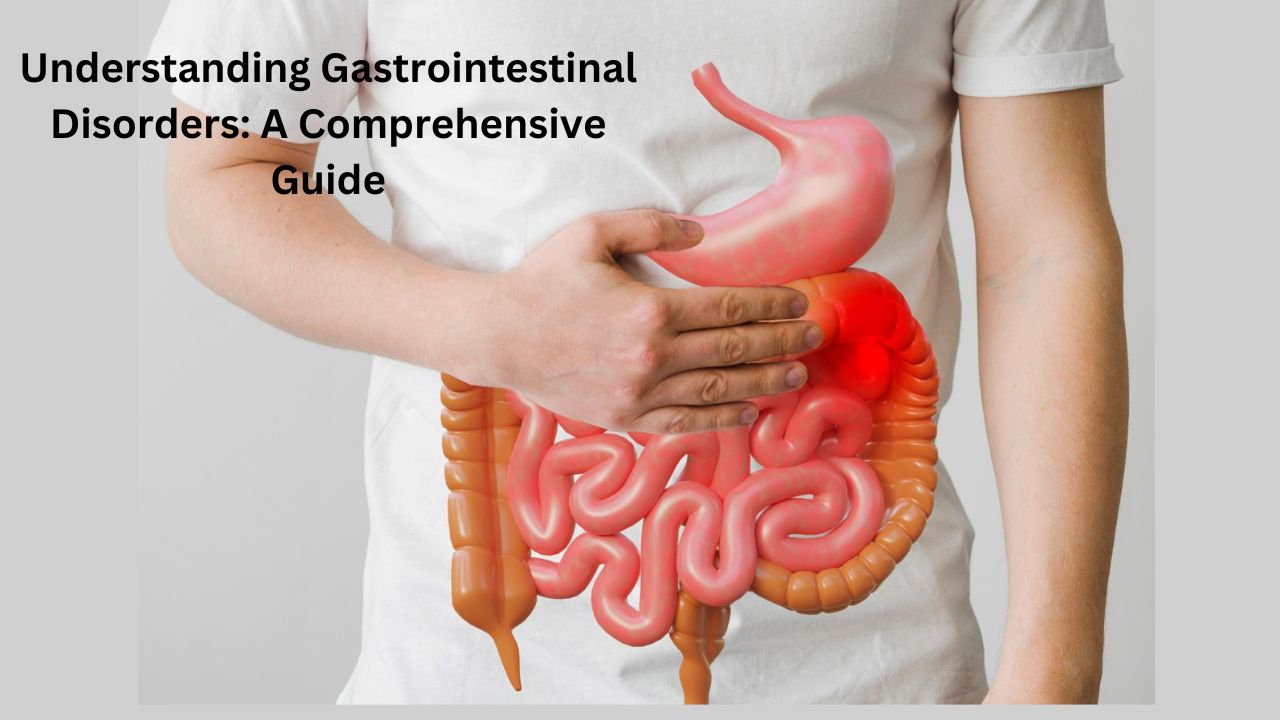Have you ever suffered digestive discomfort, cramping, or variations? Digestive disorders are prevalent, and most people have experienced gastrointestinal disorders at some point in their lifetime. Gastrointestinal disorders include a wide range of illnesses that impact the digestive tract, including the stomach, small intestine, esophagus, large intestine, and rectum.
This might involve something as simple as occasional indigestion or as serious as a chronic disease. Infections, inflammation, dietary decisions, genetics, and lifestyle choices all contribute to these diseases. The digestive system plays an important role in our overall welfare, and any disturbance can have a major effect on our daily lives. Through this comprehensive guide, let’s discuss various types of gastrointestinal illnesses, and analyze their causes, symptoms, and possible solutions.
Understand how the digestive system functions:
The gastrointestinal (GI) system in humans is a complicated system involving organs that are in the loop for digestion, nutrition intake, and waste removal. It consists of the mouth, esophagus, stomach, and small and large intestines. The process of digestion starts in the mouth, proceeds down the esophagus, and is completed in the stomach. The small intestine helps with nutrient absorption, whereas the big intestine produces waste removal. Disturbances can result in gastrointestinal disorders.
Digestive Disorders Symptoms:
Let’s take a closer look at some common digestive diseases and their symptoms.
- Irritable Bowel Syndrome (IBS): IBS is a digestive functional illness characterized by stomach pain, bloating, and changes in bowel patterns.
- Inflammatory Bowel Disease (IBD): IBD contains conditions such as Crohn’s disease and ulcerative colitis, which cause inflammation and damage to the gastrointestinal tract, resulting in symptoms such as diarrhea, stomach pain, and weight loss.
- Gastroesophageal Reflux Disease (GERD): GERD can be caused by chronic acid reflux, which appears as heartburn, vomiting, and discomfort swallowing.
- Gallstones: Investigating the causes and effects of these hardened deposits in the gallbladder.
- Celiac disease: It is an autoimmune condition due to gluten intake that can cause diarrhea, bloating, and stomach pain. It can damage the small intestine.
Gastrointestinal Disease Symptoms:
Understanding gastrointestinal disease symptoms is very important for quick identification as well as suitable care. Symptoms could differ drastically according to the disease; however, they may include:
- Bowel behavior changes (diarrhea or constipation)
- Unknown cause of weight loss
- Vomiting and nausea
- Cramping or pain in the abdomen
- Constant boating or gas
- Having difficulty swallowing
- Blood in the stool
- Fatigue
- Changes in appetite:
- Heartburn and indigestion
Digestive Disorders
- Diagnostic Procedures: Endoscopy, colonoscopy, imaging studies, and laboratory tests are among the diagnostic tools used by healthcare providers to diagnose gastrointestinal illnesses.
- Lifestyle Changes and Diet Plan: Regular physical activity, a fibre-rich diet, adequate hydration, avoiding processed foods, high-fat meals, and refined carbohydrates, and including probiotic-rich foods all help to improve digestive health. Mindful eating, nutritional choices customized to individual needs, and mindful eating practices can all help with digestion. Maintaining good digestive function and preventing gastrointestinal disorders requires a holistic approach that combines a nutritious diet with attentive lifestyle behaviors.
- Innovative Therapies and Research: Recent breakthroughs in digestive system research and therapy have centered on microbiome discovery, precision medicine, and novel treatment modalities. The function of the gut microbiome in health and disease is being studied, with therapies such as probiotics, prebiotics, and fecal microbiota transplantation influencing disorders such as inflammatory bowel disease and irritable bowel syndrome.
Bottomline
Understanding gastrointestinal diseases is critical for overall health. Recognizing symptoms and obtaining medical guidance can aid in the treatment of certain conditions. A balanced diet, regular check-ups, and a healthy lifestyle all contribute to healthy digestive function.



